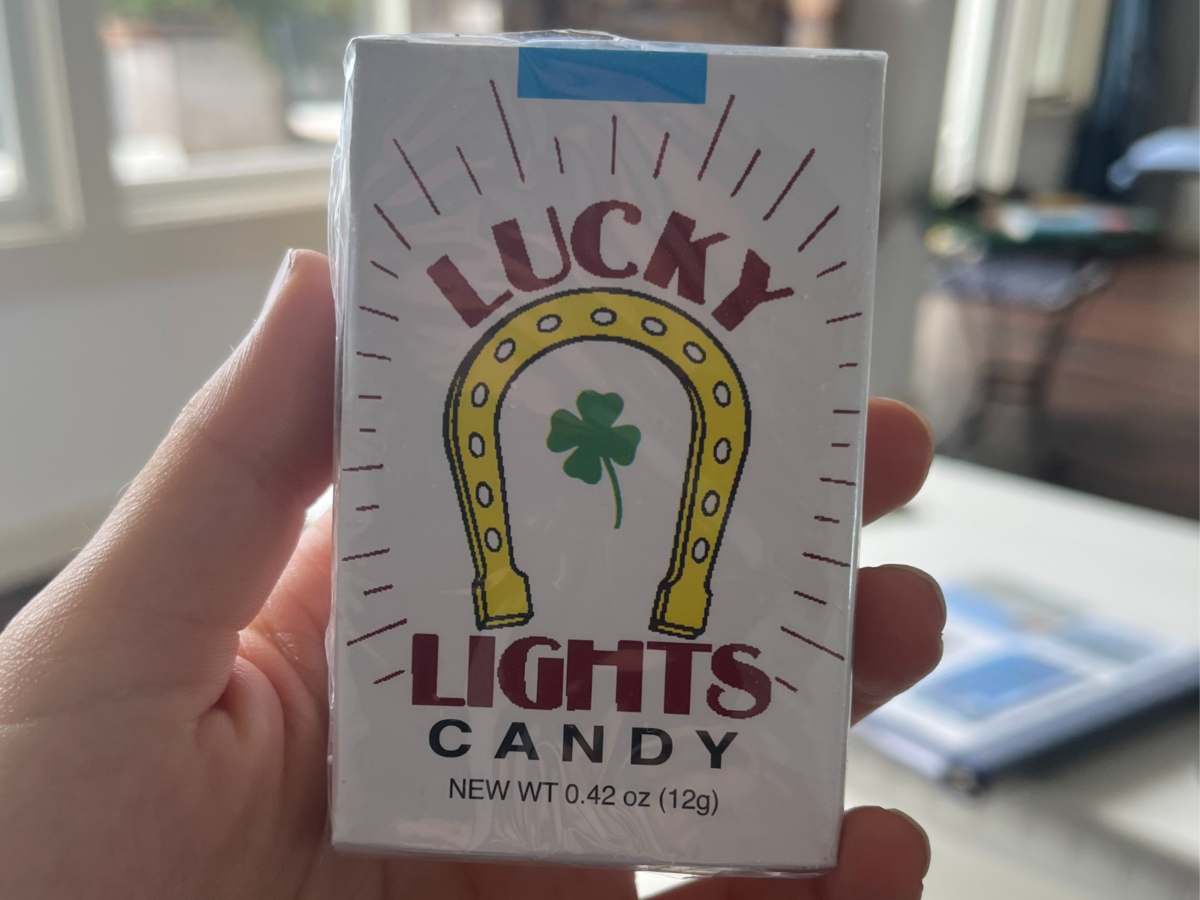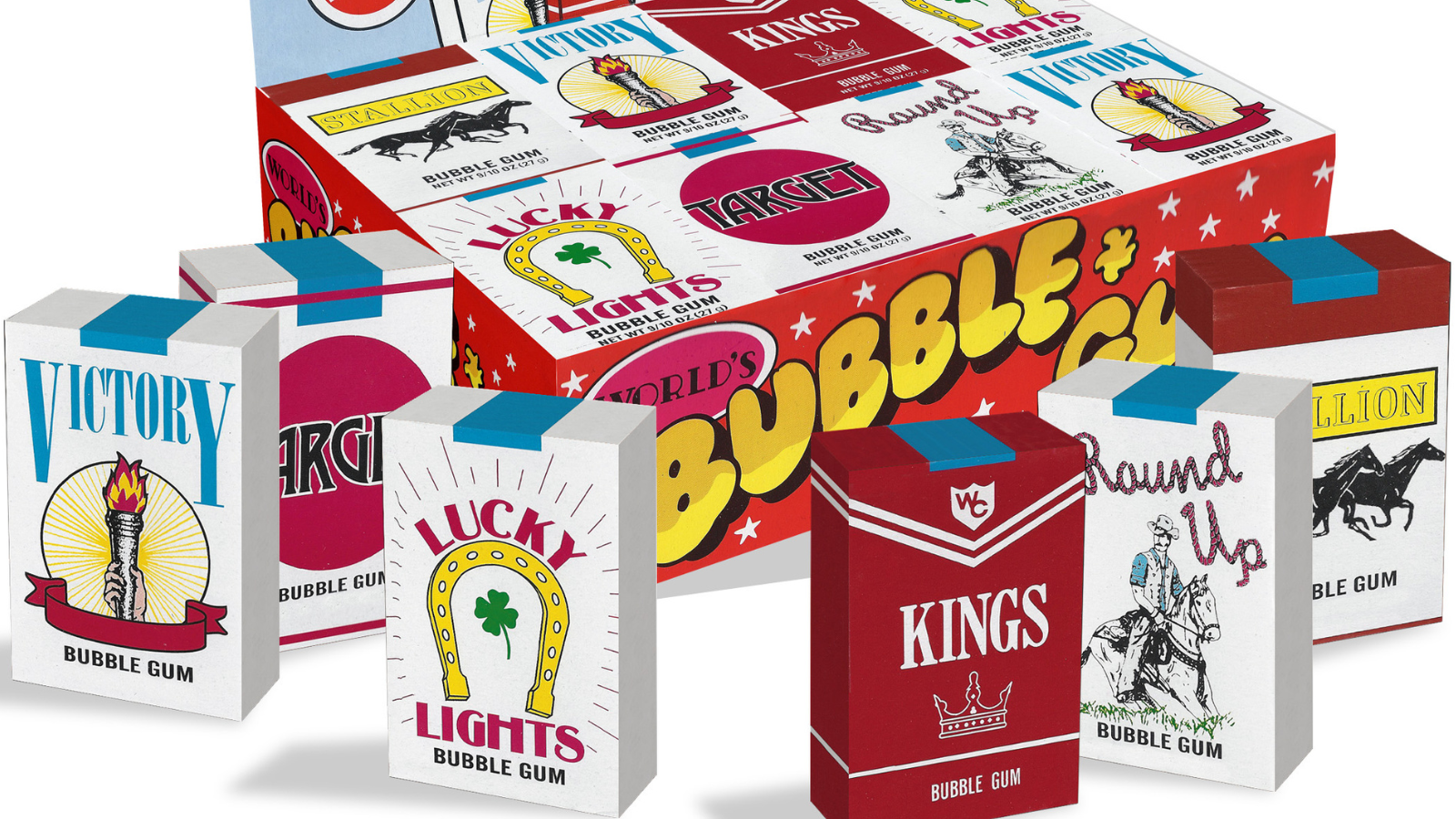While visiting Provincetown, Massachusetts, I make my way to the Penny Patch, a store that has been a vendor of vintage candies since 1956. In the large plastic bins, one can find retro sweets such as wax bottles, candy dots and — to my surprise — candy cigarettes. I spot a box of “Lucky Lights” and am caught off guard by how much the confection resembles the real thing. I buy a pack. Inside the box are 24 white candy sticks of gum, loosely resembling cigarettes. While perhaps a little controversial, the novelty candy is nostalgic and, let’s face it, pretty fun.
I had the chance to chat with Drew Cohen, Vice President of World Confections, Inc., who let me in on the surprising Jewish history of the candy.
“My grandfather, Sam Cohen, and his brother, Leon Cohen, built the World Confections factory in 1952 in Brooklyn, NY.”
World Confections, Inc., is the vendor responsible for just about every box of the white candy sticks you see on the market today. And yes, the candies were never advertised as “cigarettes” — in fact, “sticks” was the preferred term.
The Nosher celebrates the traditions and recipes that have brought Jews together for centuries. Donate today to keep The Nosher's stories and recipes accessible to all.
“My grandfather and his brother had both served in World War II,” Cohen tells me. “When they returned, they founded this company together. They were both proud Jewish men and first-generation Americans. Our family is 100% Jewish.”

When I ask Cohen if there was ever an attempt to conceal that the product was really supposed to be mock cigarettes, Cohen tells me, “They weren’t concealing anything. The idea behind the candy sticks was it worked as it fit into different brands. At one point we had a product called dinosaur bones, shaped to look like dinosaur bones, and that’s how they marketed it. At one point, they had licensing to feature certain cartoon characters on their containers.”
I ask Cohen what he feels is inherently Jewish about this legacy. “They were first generation Jewish men, enterprising. Everything about this is Jewish. From the work ethic, to the way that they were raised. To the families that they raised.
“Originally, the product was sold domestically. Now that the company is in its third generation and my brother and I have taken it over, we make many other products. We make mints, powder and pressed candy. Carrying on the company legacy is extremely important, not only to my brother and I, but to our entire family. I know our grandfather would be proud to see it growing into the next generation and thriving in a competitive global market.”
If you happen to be in Brooklyn, NY, make sure to visit the the original factory, on 30th Street between 4th and 5th Avenue in Sunset Park.
And if ever you find yourself in a retro candy shop like I did, be on the lookout for “Victory’s,” King’s” or “Lucky Lights.” You’ll be transported back to a time of fun, novelty and nostalgia.



